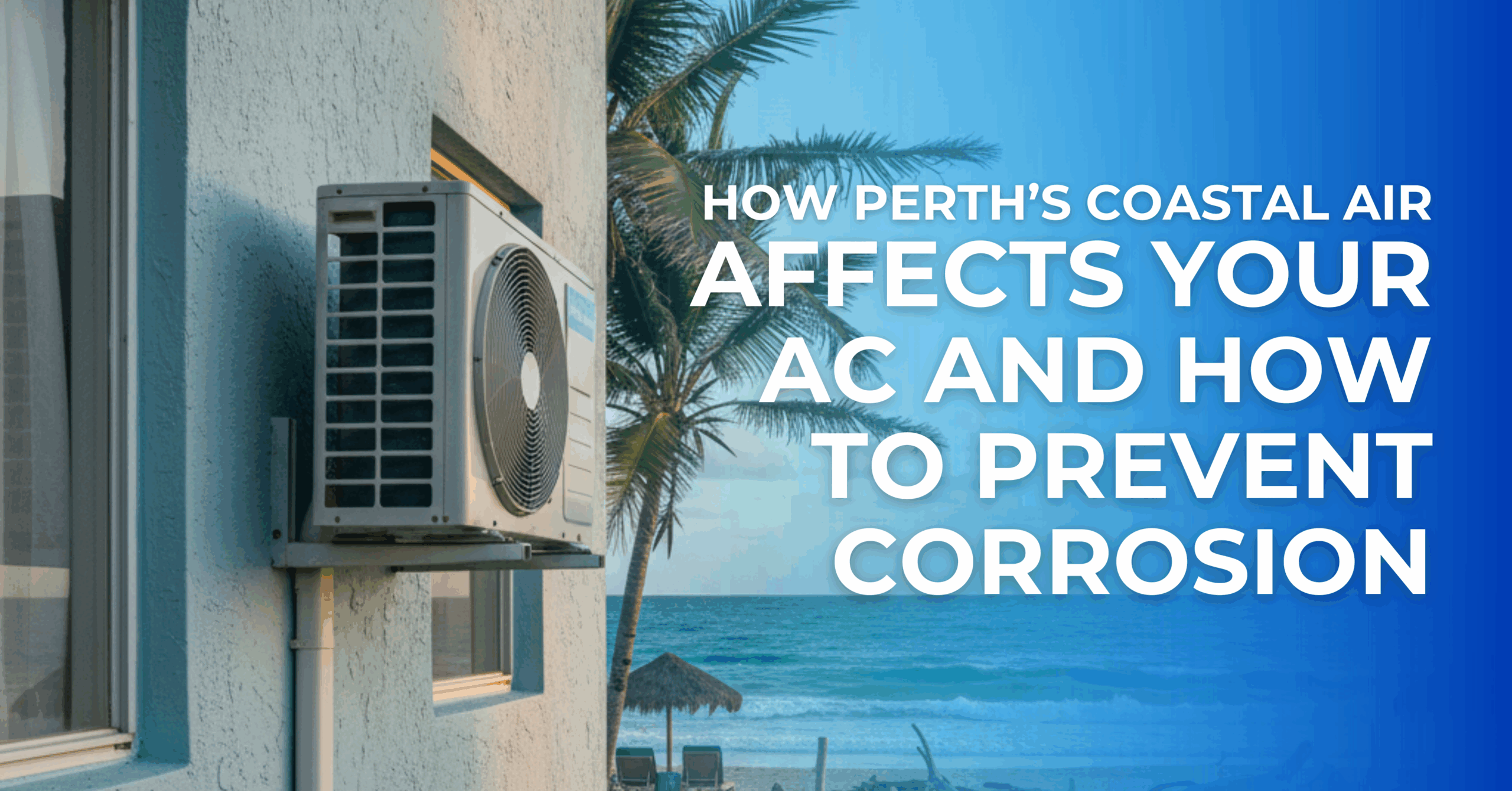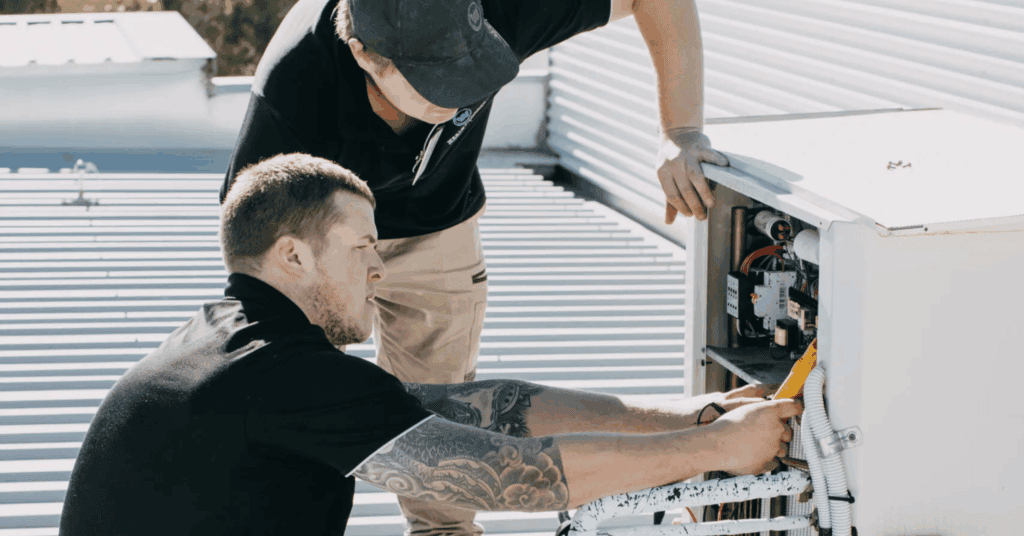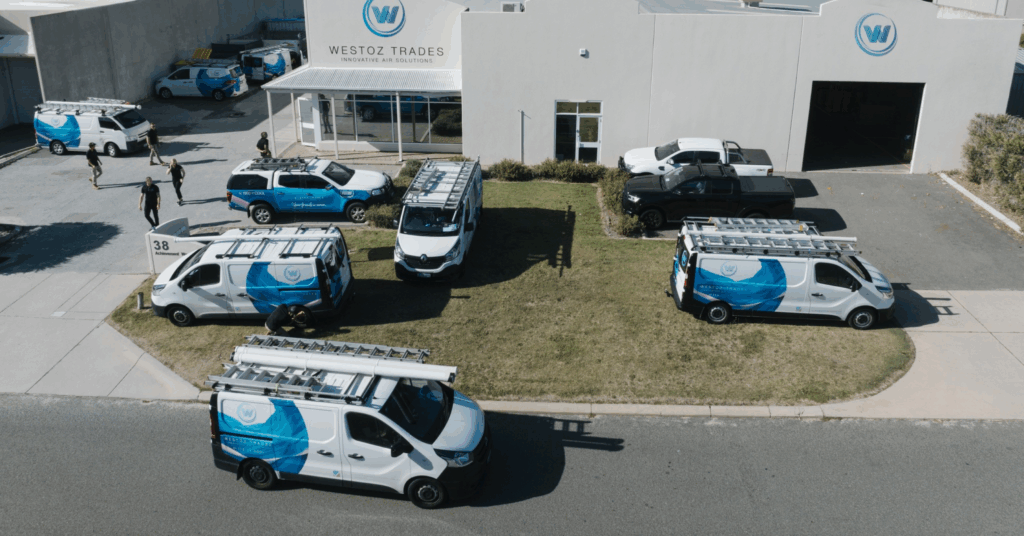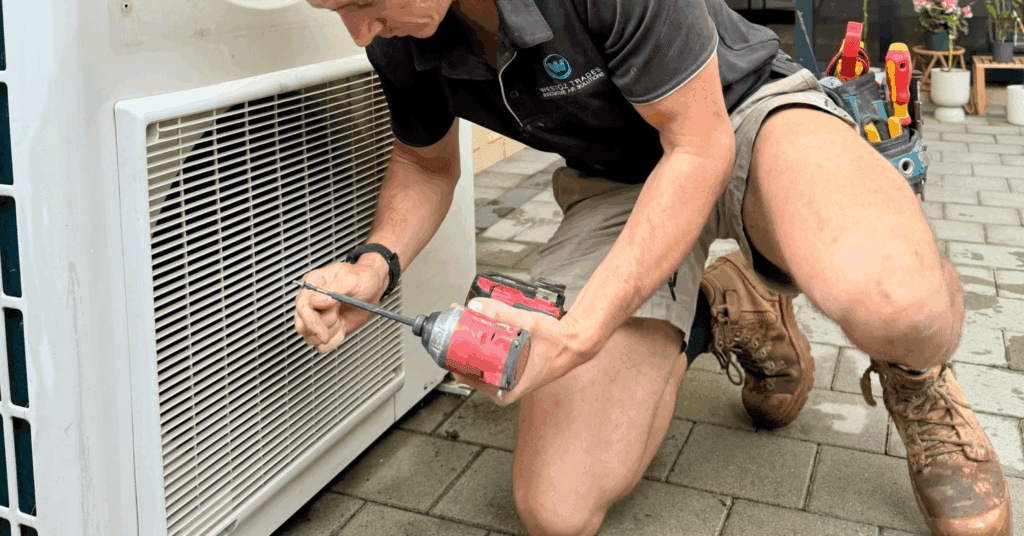Living in Perth offers a stunning lifestyle close to the coast, but it also brings unique challenges for your air conditioning system. One hidden issue many residents overlook is the effect of salty, humid coastal air on their AC units. Corrosion caused by salt in the air can quietly damage key components of your system, reducing performance and leading to costly breakdowns.
We will explain how coastal air impacts your air conditioning, how to spot early signs of corrosion, and how regular maintenance can prevent long-term damage.
Why Coastal Air Causes Corrosion
Perth’s coastal air is rich in salt and moisture, especially in suburbs near the Indian Ocean. When salty air comes into contact with metal surfaces, such as your air conditioner’s coils, fins, and casing. It accelerates oxidation and rust.
This process, called ‘salt corrosion,’ is particularly harmful to outdoor condenser units. Without adequate protection, they can deteriorate faster than systems installed inland. Once corrosion sets in, it compromises heat exchange efficiency and shortens your system’s life span.
Signs of Salt Corrosion on Your AC
Be on the lookout for:
- Rust or pitting on the outdoor unit’s casing or screws
- Reduced cooling performance
- Strange noises or vibrations
- Increased energy bills
- Unit shutting off frequently or tripping breakers
These are warning signs that the corrosive process may already be affecting internal components like the condenser coils or fan motors.
How to Prevent Corrosion in Coastal Areas
- Regular Servicing
Schedule professional maintenance every 6 to 12 months. This helps identify and address early signs of corrosion.
- Protective Coatings
Apply anti-corrosion coatings or use corrosion-resistant units specifically designed for coastal regions.
- Wash Your Unit
Rinse the outdoor unit gently with fresh water monthly to remove salt buildup.
- Install a Cover or Shield
Use covers that still allow ventilation to protect your unit during high-exposure times.
- Location Matters
If possible, install units away from direct sea-facing walls or strong winds carrying sea spray.
For comprehensive inspections and protection plans, explore our trusted services for air conditioning servicing in Perth and air conditioning repairs in Perth .
Living near Perth’s beautiful coastline shouldn’t cost you your comfort. Protect your air conditioning system from salt corrosion with help from WestOz Trades. Book your next service or repair today to avoid expensive damage and enjoy uninterrupted cooling year-round.Learn more about the impact of coastal environments on appliances from Standards Australia , a trusted source for building and maintenance standards.
Frequently Asked Questions
- Why does coastal air cause corrosion in AC units?
Coastal air contains salt and moisture, which accelerates oxidation when it comes into contact with metal surfaces. This leads to corrosion, particularly on outdoor components.
- How often should I service my AC in coastal areas like Perth?
At least once every 6 to 12 months. Regular servicing helps prevent and manage corrosion-related issues.
- Can I prevent corrosion myself?
Yes, rinsing the outdoor unit with fresh water monthly helps remove salt residue. But professional maintenance is still necessary to catch internal damage.
- What type of AC units are best for coastal areas?
Units with anti-corrosion coatings or those made with corrosion-resistant materials are ideal for coastal environments.
- Is corrosion covered under warranty?
It depends on the brand and coverage. Some warranties may exclude damage caused by environmental exposure unless anti-corrosion measures were taken.




